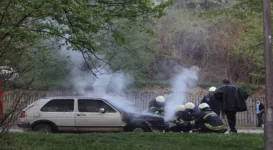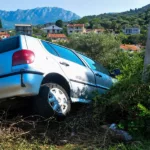If you’ve been in an accident with an uninsured driver, it’s time to take deep breath. There is a legal framework to follow that will resolve your problem. You need to act immediately after the accident if you want to protect your rights.
1. Call the Police to the Scene
Uninsured drivers know that they’ll be in trouble with the law. These individuals may have their license suspended, suffer extensive fines or even have their license completely revoked. Depending on their prior history, the driver may even suffer jail time.
These individuals may ask you to break the law and not call the cops.
This is a bad decision even if they offer you cash not to call. If you fail to call the authorities, the person may assert that you left the scene of the accident – not something you want to defend. It’s especially important to call the police when you’re in an accident with an uninsured driver.
Call the police to the scene of the accident and ensure:
- A police report is taken
- You explain the events leading to the accident
A police report will be used when taking the opposing driver to court or filing an accident claim.
2. Take Pictures, Exchange Information and Write Down the Details
The more time that passes, the more you’ll forget about an accident. You’ll want to do everything you can immediately following the accident to document everything that occurred. This documentation includes:
- Writing down the details that led to the accident
- Exchange information with the opposing driver
- Write down the make, model and license plate number of the driver
- Take photographs of the accident scene
HG.com has a great guide on taking photos of an accident scene. You’ll have a limited time to do everything outlined in this step. If you fail to take pictures or write down details, you may miss your chance at a true accident portrayal.
If you believe the opposing driver may flee the scene, take a picture of their license plate or write down the license plate number quickly.
It’s important to gather as much information as you can at this time.
3. Contact Your Insurer and Make a Claim
You always want to contact your insurer and make a claim even if the other driver is uninsured. The insurance company will help guide you on the proper steps to take from this point on – and there are a lot.
There’s also a chance that your policy includes:
- Uninsured motorist protection
If you have uninsured motorist protection, this means that you will have protection against bodily and property damage that occurs in an accident with someone that’s uninsured. This protection is standard in many states.
If you have this protection, the process will be straightforward with an investigation and then your insurance company will offer a payout. Remember, the insurance company will try to offer you a settlement, and you have a right to negotiate for a higher payout if you’re given a low figure.
According to Bill Easterly, you may be covered for:
- Your own injuries
- Injuries suffered in another person’s vehicle
- Injuries sustained in a vehicle you were a pedestrian in
- Injuries to people permitted to ride or drive your vehicle
4. Take Care of Yourself and Your Vehicle
Your health is more important than any vehicle or evidence you can gather. If you’re too injured to move, stay still and wait for the authorities. Seek medical attention if necessary. Your health insurance policy will cover most or all of your medical bills.
Since the opposing driver doesn’t have insurance, you’ll be liable for paying your deductible in most cases.
Insurers will offer help with paying medical bills and deductibles if you have uninsured motorist coverage. You may be reimbursed or covered for:
- Medical bills
- Lost wages
- Additional expenses
- Auto rentals
Following caring for yourself, you’ll want your car to be repaired properly. This means that you’ll want to talk to your insurance company and see what can be done. Anyone with uninsured motorist coverage will have their car repairs covered – if a total loss isn’t declared.
If your insurer won’t repair the vehicle in its entirety, you will need to seek compensation through other avenues, i.e. bringing a lawsuit against the opposing driver. A lawyer will be able to help you seek compensation for your injuries and damages sustained.








